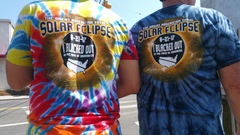Orphan consciousness
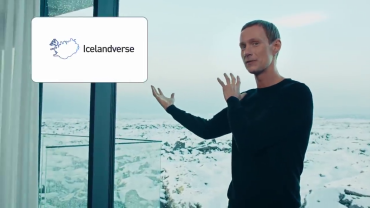 What if, Paul Bernal asked late in this year's Gikii, someone uploaded a consciousness and then we forgot where we got it from? Taking an analogy from copyrighted works whose owners are unknown - orphan works, an orphan consciousness. What rights would it have? Can it commit crimes? Is it murder to erase it? What if it met fellow orphan consciousness and together they created a third? Once it's up there without a link to humanity, then what?
What if, Paul Bernal asked late in this year's Gikii, someone uploaded a consciousness and then we forgot where we got it from? Taking an analogy from copyrighted works whose owners are unknown - orphan works, an orphan consciousness. What rights would it have? Can it commit crimes? Is it murder to erase it? What if it met fellow orphan consciousness and together they created a third? Once it's up there without a link to humanity, then what?
These questions annoyed me less than proposals for robot rights, partly because they're more obviously a thought experiment, and partly because they specifically derived from Greg Daniels' science fiction series Upload, which inspired many of this year's gikii presentations. The gist: Nathan (Robbie Arnell), whose lung is collapsing after an autonomous vehicle crash, is offered two choices: take his chances in the operating room, or have his consciousness uploaded into Lakeview, a corporately owned and run "paradise" where he can enjoy an afterlife in considerable comfort. His girlfriend, Ingrid (Allegra Edwards), begs him to take the afterlife, at her family's expense. As he's rushed into signing the terms and conditions, I briefly expected him to land at the waystation in Albert Brooks' 1991 film Defending Your Life.
Instead, he wakes in a very nice country club hotel where he struggles to find his footing among his fellow uploaded avatars and wrangle the power dynamics in his relationship with Ingrid. What is she willing to fund? What happens if she stops paying? (A Spartan 2GB per day, we find later.) And, as Bernal asked, what are his neurorights?
Fictional use cases, as Gikii proves every year (2021): provide fully-formed use cases through which to explore the developing ethics and laws surrounding emergent technologies. For the current batch - the Digital Markets Act (EU, passed this week), the Digital Services Act (ditto), the Online Safety bill (UK, pending), the Platform Work Directive (proposed, EU), the platform-to-business regulations (in force 2020, EU and UK), and, especially, the AI Act (pending, EU) - Upload couldn't be more on point.
Side note: in-person attendees got to sample the Icelandverse, a metaverse of remarkable physical reality and persistence.
Upload underpinned discussions of deception and consent laws (Burkhard Schäfer and Chloë Kennedy), corporate objectification (Mauricio Figueroa ), and property rights - English law bans perpetual trusts. Can uploads opt out? Can they be murdered? Maybe like copyright, give them death plus 70 years?
Much of this has direct relevance to the "metaverse", which Anna-Maria Piskopani called "just one new way to do surveillance capitalism". The show's perfect example: when sex fails to progress, Ingrid yells out, "Tech support!".
In life, Nora (Andy Allo), the "angel" who arrives to help, works in an open plan corporate dystopia where her co-workers gossip about the avatars they monitor. As in this year's other notable fictional world, Dan Erickson's Severance, the company is always watching, a real pandemic-accelerated trend. In our paper, Andelka Phillips and I noted that although the geofenced chip implanted in Severance's workers prevents their work selves ("innies") from knowing anything about their out-of-hours selves ("outies"), their employer has no such limitation. Modern companies increasingly expect omniscience.
Both series reflect the growing ability of cyber systems to effect change in the physical world. Lachlan Urquhart, Lilian Edwards, and Derek McAuley used the science fiction comedy film Ron's Gone Wrong to examine the effect of errors at scale. The film's damaged robot, Ron, is missing safety features and spreads its settings to its counterparts. Would the AI Act view Ron as high or low risk? It may be a distinction without a difference; MacAuley reminded there will always be failures in the field. "A one-bit change can make changes of orders of magnitude." Then that chip ships by the billion, and can be embedded in millions of devices before it's found. Rinse, repeat, and apply to autonomous vehicles.
In Japan, however, as Naomi Lindvedt explained, the design culture surrounding robots has been far more influenced by the rules written for Astro Boy in 1951 by creator Tezuka Osamu than by Asimov's Laws. These rules are more restrictive and prescriptive, and designers aim to create robots that integrate into society and are user-friendly.
In other quick highlights, Michael Veale noted the Deliveroo ads that show food moving by itself, as if there are no delivery riders, and noted that technology now enforces the exclusivity that used to be contractual, so that drivers never see customer names and contact information, and so can't easily make direct arrangements; Tima Otu Anwana and Paul Eberstaller examined the business relationship between Only Fans and its creators; Sandra Schmitz-Berndt and Paula Contreras showed the difficulty of reporting cyber incidents given the multiple authorities and their inconsistent requirements; Adrian Aronsson-Storrier produced an extraordinary long-lest training video (Super-Betamax!) for a 500-year-old Swedish copyright cult; Helen Oliver discussed attitudes to privacy as revealed by years of UK high school students' entries for a competition to design fictional space stations; and Andy Phippen, based on his many discussions with kids, favors a harm reduction approach to online safety. "If the only horse in town is the Online Safety bill, nothing's going to change."
Illustrations: Image from the Icelandverse (by Inspired by Iceland).
Wendy M. Grossman is the 2013 winner of the Enigma Award. Her Web site has an extensive archive of her books, articles, and music, and an archive of earlier columns in this series. Stories about the border wars between cyberspace and real life are posted occasionally during the week at the net.wars Pinboard - or follow on Twitter.
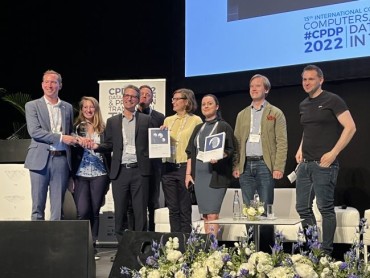 It's only an accident of covid that this year's
It's only an accident of covid that this year's 
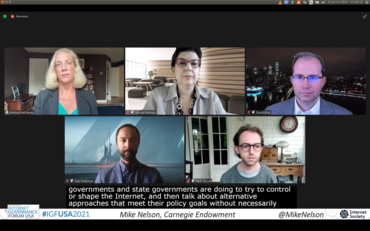
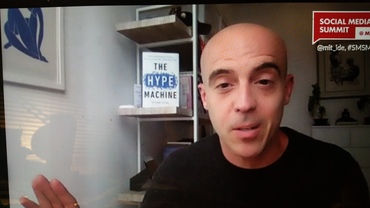
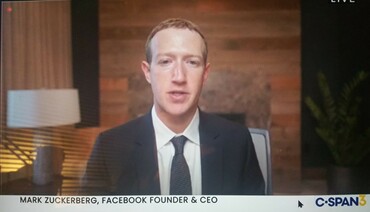
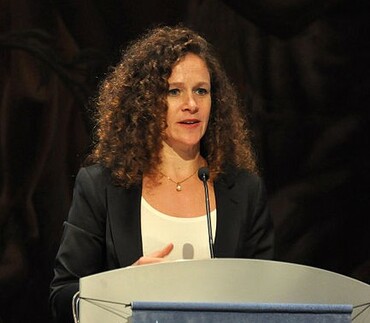

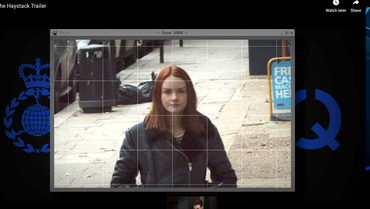


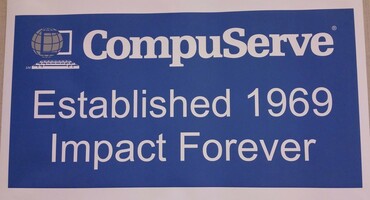





 "My iPhone won't stab me in my bed,"
"My iPhone won't stab me in my bed," 

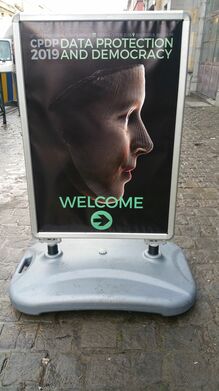
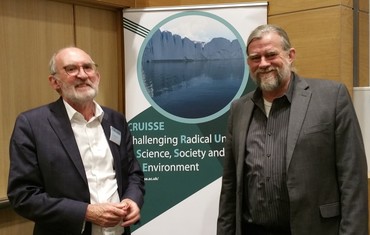
-thumb-270x360-798.jpg)


 My favourite new term from this year's
My favourite new term from this year's 
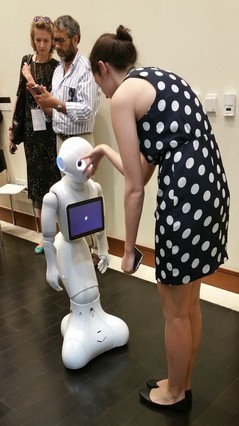
 "All sensors are terrible,"
"All sensors are terrible," 
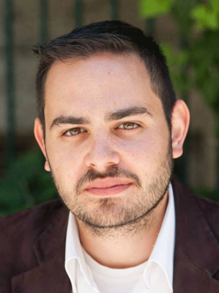

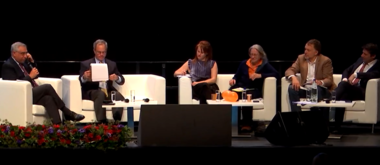
 In his draft paper, Swire favors allowing greater surveillance of non-citizens than citizens. While some countries - he cited the US and Germany - provide greater protection from surveillance to their own citizens than to foreigners, there is little discussion about why that's justified. In the US, he traces the distinction to Watergate, when Nixon's henchmen were caught unacceptably snooping on the opposition political party. "We should have very strong protections in a democracy against surveilling the political opposition and against surveilling the free press." But granting everyone else the same protection, he said, is unsustainble politically and incorrect as a matter of law and philosophy.
In his draft paper, Swire favors allowing greater surveillance of non-citizens than citizens. While some countries - he cited the US and Germany - provide greater protection from surveillance to their own citizens than to foreigners, there is little discussion about why that's justified. In the US, he traces the distinction to Watergate, when Nixon's henchmen were caught unacceptably snooping on the opposition political party. "We should have very strong protections in a democracy against surveilling the political opposition and against surveilling the free press." But granting everyone else the same protection, he said, is unsustainble politically and incorrect as a matter of law and philosophy.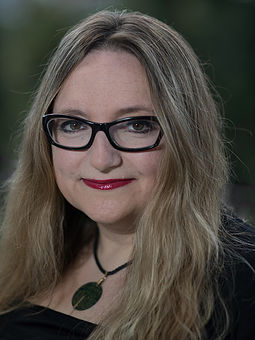
 "Regulatory oversight is going to be inevitable,"
"Regulatory oversight is going to be inevitable,"  A couple of weeks ago, I was asked to talk to a
A couple of weeks ago, I was asked to talk to a 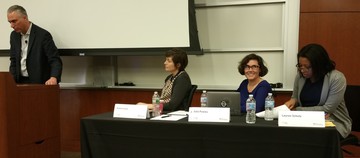 "We were kids working on the new stuff," said Kevin Werbach. "Now it's 20 years later and it still feels like that."
"We were kids working on the new stuff," said Kevin Werbach. "Now it's 20 years later and it still feels like that." Both
Both  On
On  Would you rather be killed by a human or a machine?
Would you rather be killed by a human or a machine? 


 It was Farrell's comment, though, that sparked the realization that fake news cannot be solved by thinking of it as a problem in only one of the fields of journalism, international relations, economic inequality, market forces, or technology. It is all those things and more, and we will not make any progress until we take an approach that combines all those disciplines.
It was Farrell's comment, though, that sparked the realization that fake news cannot be solved by thinking of it as a problem in only one of the fields of journalism, international relations, economic inequality, market forces, or technology. It is all those things and more, and we will not make any progress until we take an approach that combines all those disciplines. 
